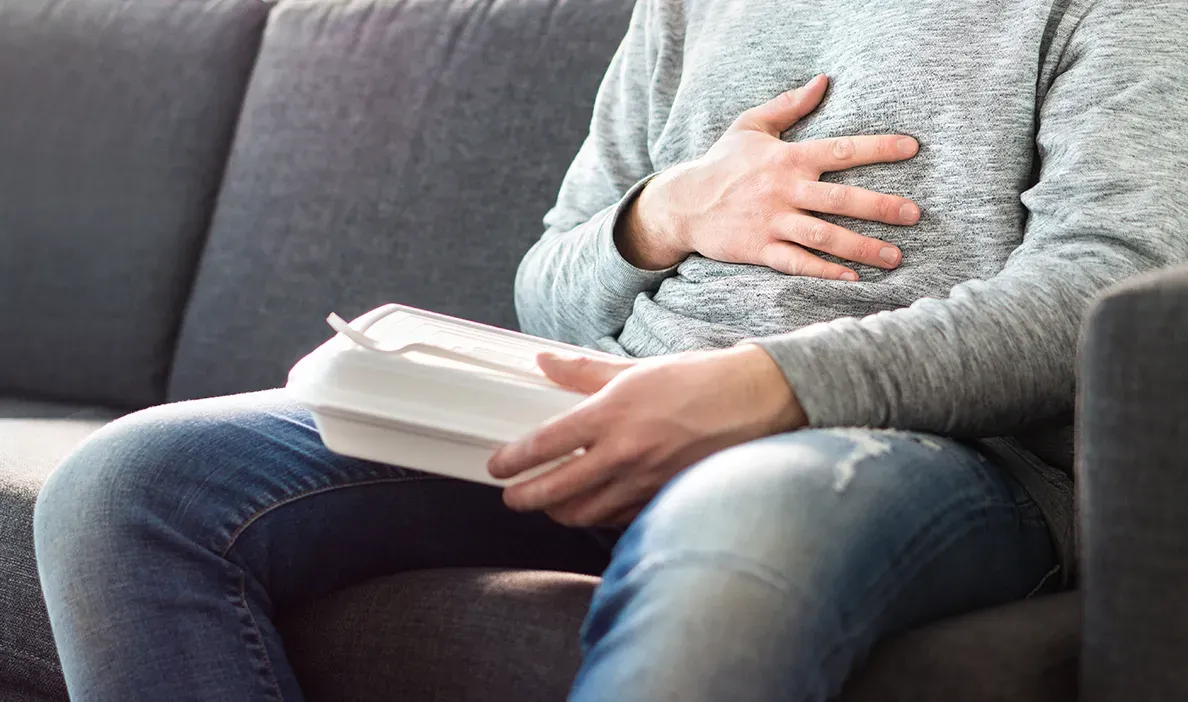Constipation can mean it’s difficult to go for a poo, or you are not going at all. You may be experiencing constipation as a symptom of cancer, or it could be a side effect of treatment for cancer.1,2,3
When should you worry about constipation?
Well, everyone’s toilet habits are different, so what might seem like not pooing to one person may be normal to another person. It’s important to keep track of your poos.2
If you have noticed any of the following symptoms of constipation, then you might benefit from the tips we share further down:1,4
- Difficulty when having a poo
- Having to push and strain when trying to have a poo
- Pain when having a poo
- Feeling like you haven’t been able to poo properly (which might include passing liquid instead of solid poo)
- Having poos that are lumpy or like small stones
Constipation can leave you feeling full and uncomfortable. It might put you off eating, which can lead to weight loss.1,2,3
What can help me cope with constipation?
Changing some of the things you eat and drink might help with constipation. For example:4,5
- Eating more foods rich in sorbitol, such as apples, apricots, grapes, raspberries and strawberries, or drinking prune juice
- Sorbitol is a sugar that the body doesn’t digest, so the gut’s reaction to this is to get rid of it through pooing
- Gradually eating more foods high in fibre, including oats, fruit and vegetables
- The recommended daily fibre intake for people in the UK is 30 grams a day
- See here for information from the NHS on how to increase your fibre intake6
- Drinking plenty of liquid each day
- The UK government recommends that adults drink around 1.2 litres of water per day, which is around 6x 200ml glasses or 8x 150ml glasses per day
- Water is a healthy choice, but other non-alcoholic drinks can also hydrate us7
- Having hot drinks, including tea and coffee, can help speed up digestion and encourage a poo
- Adding flaxseeds (also known as linseeds) to your food
- Try sprinkling a tablespoon onto foods such as yoghurt, cereal or soup, once a day
- Being active – even if you don’t feel like it, moving your body can help your bowels to work
- It doesn’t have to be something extreme – even just a walk could help
As with any other new or worsening symptoms or side effects you’re experiencing, it’s important to let your doctor know. They will be able to provide support and advice specific to your individual situation. They may prescribe a type of medicine called a laxative to help you with going to the toilet.1
References
- Cancer Research UK. Digestion problems. Available at: https://www.cancerresearchuk.org/about-cancer/coping/physically/diet-problems/types/digestion-problems [Accessed June 2025]
- World Cancer Research Fund. Constipation. Available from: https://www.wcrf.org/living-well/living-with-cancer/your-questions-answered/constipation [Accessed June 2025]
- National Health Service. Constipation. Available from: https://www.nhs.uk/conditions/constipation/ [Accessed June 2025]
- National Health Service. Improving bowel function from constipation. Available from: https://www.cuh.nhs.uk/patient-information/improving-bowel-function-in-constipation/ [Accessed June 2025]
- Johns Hopkins Medicine. Foods for constipation. Available from: https://www.hopkinsmedicine.org/health/wellness-and-prevention/foods-for-constipation [Accessed June 2025]
- National Health Service. How to get more fibre into your diet. Available from: https://www.nhs.uk/live-well/eat-well/digestive-health/how-to-get-more-fibre-into-your-diet/ [Accessed June 2025]
- British Nutrition Foundation. Hydration. Available from: https://www.nutrition.org.uk/nutritional-information/hydration/ [Accessed June 2025]






